Prosecutors representing the United States government today filed another document (via The Verge) to support the motion to compel Apple to unlock the iPhone used by San Bernardino shooter Syed Farook, calling the original order a "modest" request that would not result in a universal "master key" and dismissing many of Apple's legal arguments.
The document says Apple's rhetoric is false and "corrosive of the very institutions that are best able to safeguard our liberty and our rights." Apple's efforts, and those of its supporters, to highlight the wider issues the order could have on encryption, are a "diversion," says the government.
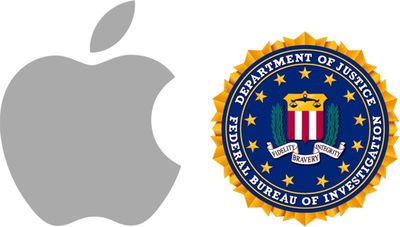
Apple and its amici try to alarm this Court with issues of network security, encryption, back doors, and privacy, invoking larger debates before Congress and in the news media. That is a diversion. Apple desperately wants--desperately needs--this case not to be "about one isolated iPhone." But there is probable cause to believe there is evidence of a terrorist attack on that phone, and our legal system gives this Court the authority to see that it can be searched pursuant to a lawful warrant. And under the compelling circumstances here, the Court should exercise that authority, even if Apple would rather its products be warrant-proof.
Unsurprisingly, the government argues that the All Writs Act does, in fact, give the courts the power to compel Apple to unlock the iPhone, disagreeing with Apple's argument that Congress' choice not to expand on the Communications Assistance for Law Enforcement Act serves as evidence Congress has limited the assistance companies must provide to law enforcement.
It also walks through several prior court cases in an effort to challenge many of Apple's claims, including that no company has been conscripted to produce code for the government and that it would be an undue burden for Apple to create new software for the FBI.
Apple is accused of "deliberately" raising technological barriers preventing the government from obtaining the data on the iPhone through a lawful warrant. "Apple alone can remove those barriers so the FBI can search the phone," reads the document, "and it can do so without undue burden." Apple is "one of the richest and most tech-savvy companies in the world," and is "more than able to comply with the AWA order." The government goes on to suggest that there's no evidence a narrow order could apply to additional devices in the future, but if it does, Apple is "more than able to comply with a large volume of law-enforcement requests."
Next, contrary to Apple’s stated fears, there is no reason to think that the code Apple writes in compliance with the Order will ever leave Apple’s possession. Nothing in the Order requires Apple to provide that code to the government or to explain to the government how it works. And Apple has shown it is amply capable of protecting code that could compromise its security. [...]
Far from being a master key, the software simply disarms a booby trap affixed to one door: Farook’s.
Several sections in the motion also disagree with the notion that the software could be used on other devices and could fall into the hands of hackers or lead to Apple being forced to comply with data requests from foreign governments.
Apple speculates that if it submits to a lawful order to assist with a constitutional, warranted search of a consenting customer's phone in America, Apple will have no choice but to help totalitarian regimes suppress dissidents around the globe, and "hackers, criminals, and foreign agents" will have access to the data on millions of iPhones. This putative public burden, Apple argues, is a basis to relieve it from the Order. Apple's fears are overblown for reasons both factual and legal.
Apple and the U.S. government have been engaged in a fierce public battle over the order that would require Apple to help the FBI break into the iPhone of San Bernardino shooter Syed Farook by creating new software to circumvent passcode restrictions on the device. Apple believes complying with the demand would set a dangerous precedent that could lead to the overall weakening of encryption on smartphones and other electronic devices.
Apple executives, including Tim Cook, Eddy Cue, and Craig Federighi have all given public interviews in recent weeks explaining Apple's stance, positioning the government's request as an overreach of power that could snowball into a continual stream of invasive demands impacting the privacy rights of its customers across the world.
Apple is scheduled to appear in court to fight the order on March 22, the day after its planned March 21 event that will see the debut of the iPhone SE and the new 9.7-inch iPad.
Update: Apple legal chief Bruce Sewell spoke with reporters following the government's filing, and a transcript of what he had to say has been shared by Business Insider.
In the statement, Sewell says the "cheap shot" brief's tone "reads like an indictment." He says it is an "unsupported, unsubstantiated effort to vilify Apple" rather than an effort to cover the issues in the case.
In 30 years of practice I don't think I've seen a legal brief that was more intended to smear the other side with false accusations and innuendo, and less intended to focus on the real merits of the case. [...]
We add security features to protect our customers from hackers and criminals. And the FBI should be supporting us in this because it keeps everyone safe. To suggest otherwise is demeaning. It cheapens the debate and it tries to mask the real and serious issues. I can only conclude that the DoJ is so desperate at this point that it has thrown all decorum to the winds....
Note: Due to the political nature of the discussion regarding this topic, the discussion thread is located in our Politics, Religion, Social Issues forum. All forum members and site visitors are welcome to read and follow the thread, but posting is limited to forum members with at least 100 posts.


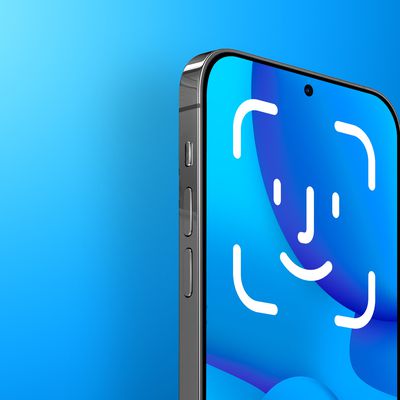



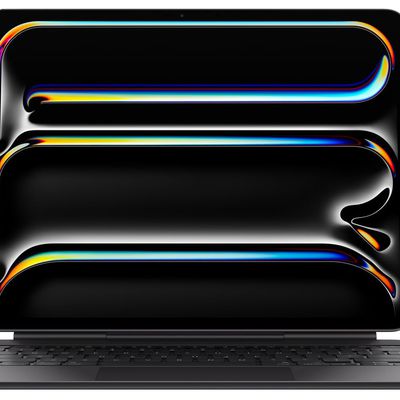









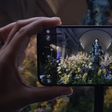
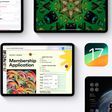
Top Rated Comments
Apple: no, it will have terrible consequences and unlock every iPhone
FBI: no it won't
Apple: yes it will
FBI: no it won't
Apple: *rolls eyes*
They are accusing Apple of the very thing they're aiming to do Jesus Christ.